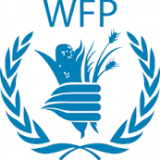The United Nations World Food Programme is the world’s largest humanitarian agency fighting hunger worldwide. The mission of WFP is to end global hunger. Every day, WFP works worldwide to ensure that no child goes to bed hungry and that the poorest and most vulnerable, particularly women and children, can access the nutritious food they need.
Requisition #: 8861
Job Purpose
- Lead the implementation of food safety and quality management and/or food product optimisation initiatives within a CO or support regional or global initiatives.
- Job holders are responsible for partnering with the key supply chain functions to ensure an integrated supply chain approach to meeting the food assistance needs of beneficiaries.
Key Accountabilities (not all-inclusive)
- Establish and implement protocols and tools relating to food technology issues, such as food safety and quality and food product optimisation, ensuring alignment with WFP procurement and supply chain strategy, policies and plans.
- Review and provide advice on the procedures for mitigating and documenting food quality and safety issues e.g. during food transit and storage in warehouses.
- Establish and implement protocols and tools in country offices that enable rapid response to situations with food safety concerns.
- Provide technical guidance and input to country offices in the design and implementation of medium scale and/or relatively straight forward food assistance programmes, ensuring compliance with WFP food and safety regulations.
- Lead and motivate a small team of staff, providing coaching, training and guidance as required to ensure appropriate development and enable high performance.
- Develop and deliver training modules to WFP staff and external stakeholders on the key areas of food technology, such as quality control, food processing, loss prevention and mitigation, to build local capacity in the processing and/or production of specialized nutritious foods.
- Prepare accurate and timely reports that inform food risk assessment and management, and contribute to a WFP wide view of food technology activities, enabling informed decision making and consistency of information presented to stakeholders.
- Build relationships and collaborate with counterparts in key supply chain functions to establish standard operation procedures, protocols and tools that maintain, monitor and verify food safety and quality along the WFP supply chain.
- Build productive relationships and partnerships with counterparts in UN agencies, NGOs, governments and the private sector to enhance WFP capacity to respond effectively to levels of under nutrition.
- Keep current on emerging developments and cutting edge research on the areas of food safety and quality and/or food product optimization in order to leverage the opportunities to incorporate industry best practices.
- Act in an assigned emergency response capacity as required to meet emergency food assistance needs.
- Other as required.
Other Specific Job Requirements (Functional Capabilities)
This section is optional to describe additional responsibilities & knowledge required for the specific job:
Food Quality Management:
- Guides team on the principles of matching food types with local needs and capabilities across the supply chain (e.g., storage capacity) to optimize impact of WFP resources.
Research & Development:
- Demonstrates ability to oversee research that assesses the health status of a population and the link back to basic nutrition requirements and needs.
Commodity Knowledge:
- Utilizes in-depth knowledge of food product optimization and broad knowledge of best practices, techniques and processes to provide technical guidance to country offices in design of food assistance programmes.
Incidence & Risk Communication Management:
- Educates unit/region on the appropriate procedures for handling and communicating risks as they emerge in a timely and safe manner.
Ethics & Compliance:
- Drafts plan for audit queries and process improvements in line with ethics/compliance standards, donor requirements, and operating procedures.
Standard Minimum Qualifications
- Education: Advanced university Degree in Food Technology, Health Sciences, Food Control, Nutrition or other related field, or First University degree with an additional years of related work experience and/or training/courses.
- Language: International Professional: Fluency (level C) in English language. Intermediate knowledge (level B) of a second official UN language: Arabic, Chinese, French, Russian, Spanish, and/or WFP’s working language, Portuguese.
- National Professional: Fluency (level C) in English language and the duty station’s language, if different.
Desired Experiences for Entry into the Role
- Has worked in emergency response capacity.
- Has worked with counterparts in supply chain function.
- Has experience monitoring and assessing food safety and quality issues.
- Has experience building strong external relationships.
- Has experience working on developing food assistance programmes.
More Information
- Job City Abuja


